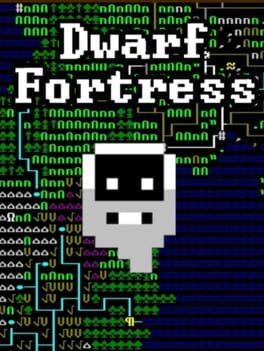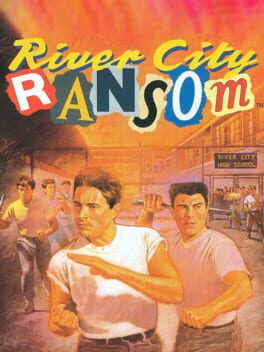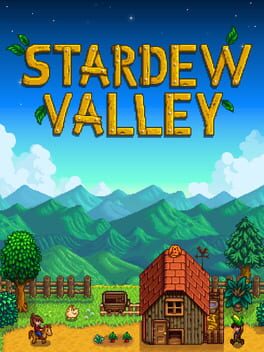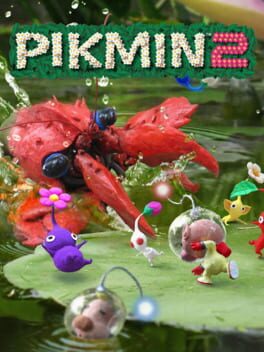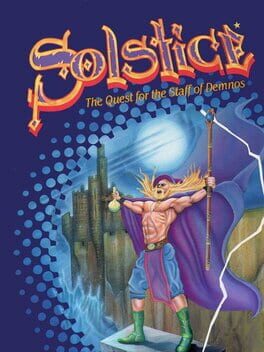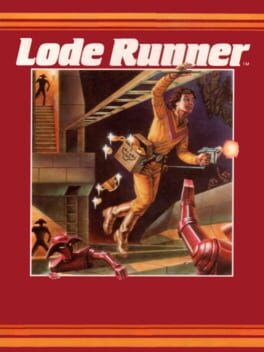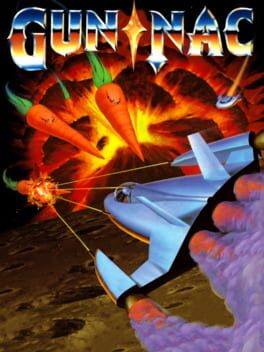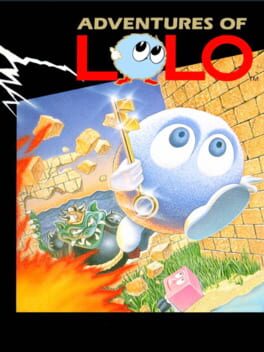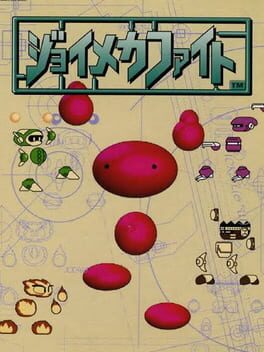loosefabrics
2006
The highest example of realism in simulation games, for better and for worse. This shows us the possibilities of feeling, analyzing and walking around this byzantine simulation and its outcomes, but simultaneously opens these inner workings up to a higher level of scrutiny than more superficial simulations. While the game shoots loftily high, the particular biases of the authors hinder the game from having an interesting theory of history, or from taking the plant-life and larger ecology simulation as seriously as the combat. A work focusing on the development of social forces over time on the scale of dwarf fortress (with its psychology model, and individuals that can be tracked) would be more interesting than something like the victoria series with its purely mechanical and outsider view (which to be fair, dwarf fortress' tracking of the shift from early feudal to late feudal early mercantile production, expansion and centralization of city states and holdings, etc, is somewhat present but the emphasis on the nihilistic unchangedness of the world is hamfisted in), and focusing on the ecology simulation with respect to dwarven production may be able to lead to a less extractive focused simulation. Similarly to the problem of minecraft, the world outside of the player character or dwarves is dead. Like "crystallized thoughts" the natural world marches onward (or in minecraft's case, doesnt move at all) irrespective of man's (or dwarve's) relation to it. Regardless, while not the only way to bring realism to games, this game has carved out a path to it unmatched by any of its emulators.
Outside of this, the actual text of the game has two competing tendencies, and a conservative dressing. There is an attention to the particularity and texture of the various peoples lives, the depiction of beauty in the scope and detail and interconnectedness of it. At the same time there is a rejection of this holding any meaning, that all that exists is pathetic and will be washed away with the ever present threat of madness and mortal fragility of things, foolish pettiness of people, etc. The interplay between these tendencies can be somewhat compelling (there certainly is a lot of foolish repetition of similar mistakes! though not in aggregate of all mankind as the game implies) and acts as a turning wheel through which the dwarves psychology forms. All well and good, however, the threat of fragility and madness falls into a lazy trope of life and civilization being unavoidably cruel and cyclic, clearly stemming from a resignation of the authors grappling with themselves living in a cruel empire that ultimately serves as a gimmick to the persistence of the world as-is. Cities die and leave their presence like demon corpses in doom, scattered across the map in fleshy heaps granting an illusion of persistent influence. But the actual influence of peoples and civilizations upon each other is limited in simulation impact outside of dictionary-like mind entries, names of poetry, family or city affiliations, feeding into a wiki "lore" diving tendency rather than direct relations impacting the games internal economy which has a primary position of the object of the players available verbs (with the exception of books allowing for skill transfer, which largely take a backseat, and artifacts, which function largely as static wealth numbers). Clearly, this nihilistic tendency weighs upon the possibility of the simulation such that the game can come to the predetermined conclusion of no persisting progress and limited historical influence. In this way, the text limits the game and detracts from the strongest points of its own writing.
Finally, we have the inheritance of tolkien. This is the dressing of the game, common to the fantasy genre, of hardly obscured race science. Even going so far as the inclusion of races that have natural inclinations to violence and theft that limits their capacity for industry. This obviously is cartoonishly racist. Addressed in some mods changing the relations between the goblins and dwarves usually band-aids over this at best. A game which attempts to step over dwarf fortress would clearly have to reject this as a premise from the beginning of development, it is simply offensive and unnecessary even within the games own mechanics (which many of the aforementioned modders have long realized) for war and diplomacy, which is the tolkien fantasy races primary function as having de-facto aggressive villains. With most fantasy games, the setting seems largely to be invoked specifically for this purpose, of having a whole race or caste of people that can be gleefully exterminated (see also, BOTW or Elden Ring). If there is to be any saving of fantasy as a setting, this colonial and essentialist writing and mechanical crutch needs to be left far behind and thoroughly criticized in existing works, as well as likely requiring an extensive reworking of many of the assumptions of fantasy itself.
Outside of this, the actual text of the game has two competing tendencies, and a conservative dressing. There is an attention to the particularity and texture of the various peoples lives, the depiction of beauty in the scope and detail and interconnectedness of it. At the same time there is a rejection of this holding any meaning, that all that exists is pathetic and will be washed away with the ever present threat of madness and mortal fragility of things, foolish pettiness of people, etc. The interplay between these tendencies can be somewhat compelling (there certainly is a lot of foolish repetition of similar mistakes! though not in aggregate of all mankind as the game implies) and acts as a turning wheel through which the dwarves psychology forms. All well and good, however, the threat of fragility and madness falls into a lazy trope of life and civilization being unavoidably cruel and cyclic, clearly stemming from a resignation of the authors grappling with themselves living in a cruel empire that ultimately serves as a gimmick to the persistence of the world as-is. Cities die and leave their presence like demon corpses in doom, scattered across the map in fleshy heaps granting an illusion of persistent influence. But the actual influence of peoples and civilizations upon each other is limited in simulation impact outside of dictionary-like mind entries, names of poetry, family or city affiliations, feeding into a wiki "lore" diving tendency rather than direct relations impacting the games internal economy which has a primary position of the object of the players available verbs (with the exception of books allowing for skill transfer, which largely take a backseat, and artifacts, which function largely as static wealth numbers). Clearly, this nihilistic tendency weighs upon the possibility of the simulation such that the game can come to the predetermined conclusion of no persisting progress and limited historical influence. In this way, the text limits the game and detracts from the strongest points of its own writing.
Finally, we have the inheritance of tolkien. This is the dressing of the game, common to the fantasy genre, of hardly obscured race science. Even going so far as the inclusion of races that have natural inclinations to violence and theft that limits their capacity for industry. This obviously is cartoonishly racist. Addressed in some mods changing the relations between the goblins and dwarves usually band-aids over this at best. A game which attempts to step over dwarf fortress would clearly have to reject this as a premise from the beginning of development, it is simply offensive and unnecessary even within the games own mechanics (which many of the aforementioned modders have long realized) for war and diplomacy, which is the tolkien fantasy races primary function as having de-facto aggressive villains. With most fantasy games, the setting seems largely to be invoked specifically for this purpose, of having a whole race or caste of people that can be gleefully exterminated (see also, BOTW or Elden Ring). If there is to be any saving of fantasy as a setting, this colonial and essentialist writing and mechanical crutch needs to be left far behind and thoroughly criticized in existing works, as well as likely requiring an extensive reworking of many of the assumptions of fantasy itself.
1990
2016
All of the worst aspects of settler-colonial homesteading fantasy wrapped up in a rigorously boring "game". There are titles that do every aspect of game play better than stardew, and every bit of writing drips in a putrid Jeffersonian populism. This may as well have been titled "Donald Trump MAGA Simulator", but perhaps "Left Liberal SPITES Amazon for the Small Landholding All Amerikkkan No Slaves Here Plantation I Mean Commune" would better fit the demographic.
2004
Pikmin 2 feels living in a way rarely seen outside of dedicated simulation games. Each creature's disposition, personality, and mechanical quirks mesh with the delicate and playful level design, all perfectly scored by an organically dynamic yamaha keyboard filled soundtrack. Each graphical interface flourish, temperate rainforest ground texture, squash-stretching honey ball-bouncing animation, and gentle sway of digital foliage is raised up to its just warmly burrowed living architecture-delving game player.
One of the most endearing graphical styles on the console, mechanically strange, and mysteriously laid out. The music is both religiously exalting and playful, perfectly matching its dungeon. High ranking on the console's must-play for its clear-eyed color-deliberated style commitment and consistent quality. The rogueish runs delving deeper into the dungeon all lending to its whole hearted selling of exploratory orb-gazing magehood. Despite this, its generally endearing self struggle with the hardware comes into antagonism with the player in its platforming at times, and so one may benefit from a save-state playthrough. All this, however, the seemingly requisite comically asinine hot-girl-retrieval story and suspicious goblin design tropes make the already hammy setting perhaps too self indulgent for the designers. A more esoteric setup or total removal of any setup would have better served as wrapping of dungeon navigating. The plot, as is custom, serves as gristle.
1983
The visual design is sign-post clear, color choice eye-pleasing, and the level architecture is fun to navigate and encounter. The basic mechanics of digging and duping (its bread and butter simplest description) leaves a charismatic impression and is satisfying to pull off, any executive clunkiness aside. Otherwise, not a real video game.
1982
1990
1989
I first played this game with my dad when I was 8 on an emulator on our bright yellow cube-shaped playmobil-evoking windows XP. The lack of instructions but low stakes made the game approachable and engaging, and even, a little mysterious. This and bubble bobble quickly became my favorite NES games. The puzzle box quality has a tactile and systematic nature to it that felt satisfyingly clockwork. The music and animations made it welcoming. The quick striking nature of the medusa and... dagger-toting? cat? introduced just enough fear into the heart of an 8 year old girl that there was a satisfying flow of tension between the more contemplative and the twitchier level designs, lovingly seasoned through the dungeon floors. I would recommend this.
1993
